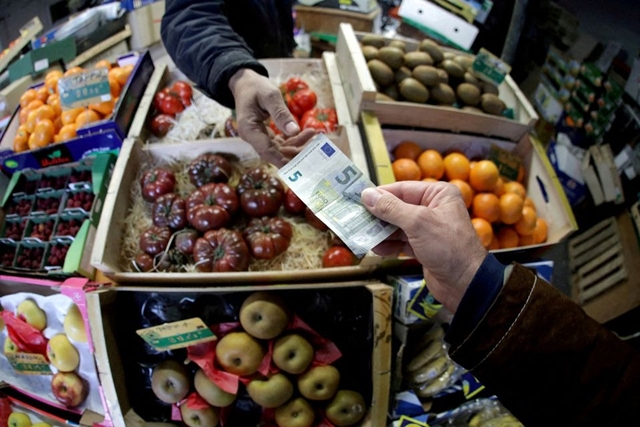European consumers ‘take a hit’ from the Ukraine crisis
Consumer confidence indexes in France and Germany in March fell more than expected, as the government’s moves to support the people in the face of energy prices and rising inflation amid tensions with Russia – Ukraine’s escalation is not doing much, according to the results of several surveys released on March 29.
The European Central Bank (ECB) said it remains optimistic that the eurozone can avoid a serious crisis. However, a slump in consumer confidence in the bloc’s two largest economies has erased hopes of a strong recovery once restrictions related to the Covid-19 pandemic were lifted.
“In February, the hope that consumer confidence will improve after the disease control measures are eased is still very high. However, the tense relationship between Russia and Ukraine has raised hopes. that hope to the ground,” said Rolf Buerkl, consumer analyst at GfK.
In Germany, GfK said its consumer confidence index, based on a survey of 2,000 participants, fell to -15.5 points in March, the lowest level since March. February 2021.
Economists surveyed by Reuters forecast the index could fall to -14.

Consumer confidence indexes in France and Germany in March fell more than expected. Photo: Reuters. |
In France, the INSEE statistical institute said the consumer confidence index fell to 91 points from 97 in February, lower than previous forecasts and this is also the lowest level since February 2021.
“Such a sharp drop is rare,” BNP analysts commented in a report showing that the consumer confidence index has only fallen more sharply than it did now during the 1993 crisis. and the period of social distancing in 2020.
Pre-election optimism does not exist
This result contrasts with the usual trend before every presidential election, when optimism is high in the hope that a new political order will help raise living standards.
Ahead of the French presidential election in April, the French government announced a series of support measures worth $25 billion to ease the pain of rising energy prices and inflation.
But those measures have not been effective in reducing the “fear” of inflation when the percentage of people who expect an escalation of inflation has increased by 50 points to the highest level since INSEE started implementing. conducting this survey since 1972.
As part of the support measures, France has been ahead of the rise in gas and energy prices through financial subsidies for low-income households and efforts to bring down fuel prices.
In Germany, the ruling coalition reached an agreement last week that a second package of support would be deployed to help people in the face of a storm that increased energy, heating and fuel costs.
Under this 17 billion euro package, workers and households will receive cash benefits, gas tax breaks and public transport tickets.
The IMK Institute also forecasts that the German economy will grow more slowly than expected. Even the German economy may grow negative this year due to the consequences of the tense relationship between Russia and Ukraine.
The agency’s experts forecast a 2.1% growth baseline for the German economy, down from half the previous forecast of 4.5% in December 2021. But they also hinted at a worst-case scenario, in which a high energy gain could lead to a -0.3% growth in the German economy.
A sharp drop in consumer confidence is also happening in a number of other countries in the region besides Germany and France.
According to a quick estimate, the eurozone consumer confidence index fell to 18.7 points in March, the lowest level since the Covid-19 pandemic broke out in April and May 2020.
Italy, the third largest economy in the EU, also saw a similar situation, according to official statistics released last week.
The war in Ukraine also caused a decline in the consumer confidence index in Belgium, while this index in March in the Netherlands also fell to a nine-year low.
Economists polled by Reuters this month expect the eurozone to grow 3.8% in 2022 and 2.5% in 2023, down slightly from the previous month.
at Blogtuan.info – Source: cafebiz.vn – Read the original article here



